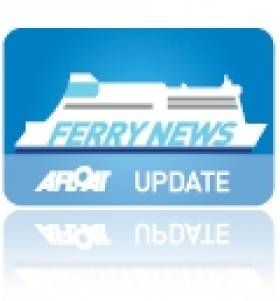Displaying items by tag: Conventional ships
Stena Line to Reduce Dun Laoghaire-Holyhead Service
Stena Line said the fast craft service would operate until 13th September and would then be suspended until the 2012 season. Two conventional ferries will continue to operate year-round on the company's neighbouring route between Dublin Port and Holyhead.
Stena said it hoped to start the service again in April or May although no decision has been made on an exact date.
Area Director for Stena Line's business on the Irish Sea Michael McGrath said: "Despite all our attempts to reduce operating costs over the last few years, it has not been possible to return the route to profitability.
"We regret that this decision will have an impact amongst our ship's personnel and our port operations staff in Dun Laoghaire but this is a decision that has to be taken for the benefit of the overall business. We simply cannot continue to sustain these levels of financial losses.
"We will now embark on a period of consultation with our staff and their union representatives to discuss the implications of the proposed changes with them."
Stena says it hope to start the service again in April or May, although no decision has been made on an exact date. It is believed around 53 staff will be affected by the decision.






























































